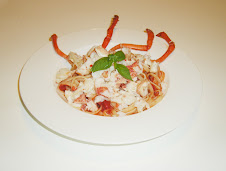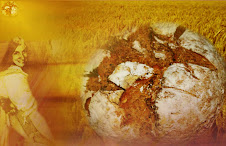Echoes of the Great Depression - Going Back to BasicsEven though little is written or portrayed on the Food Network, we are in the middle of a food crisis similar to that of the Great Depression. Whether directly affected by hunger or not, economic hardship is ever-present in most Americans’ minds. We are either experiencing it, fearing it, and concerned about loved ones who are dealing with it.
During times of hardship, those of us in the kitchen have to be very creative in order to provide wholesome sustenance. During the Great Depression, food costs (including sugar) were much lower than they are today. Americans began to consume a great deal more sugar, as it was a relatively inexpensive commodity and it satisfied their hunger cravings. I suspect that this trend has persisted and is a significant factor in our current problems with excessive food consumption and our current obesity epidemic. It during the Great Depression that foods began to become over-processed, and increasingly less nutritious. Back in those days, food was relatively inexpensive. A cost-conscious cook could therefore stretch the budget while still being able to serve a fairly well-balanced meal. Today, however, prices have risen to the point where “a chicken in every pot” is not even possible - at least not a healthy chicken.
Today, one egg costs roughly the same amount as a dozen eggs cost during the Great Depression. It is therefore not surprising that the relatively inexpensive ingredients (sugar, salt, and refined flour are ubiquitous elements in most processed foods.
Today, there is a silent revolution at the table. We are bombarded with advertising for “cheap food” that is full of GMO ingredients, preservatives, flavor enhancers, high sugar content, and refined carbohydrates. What I find disturbing is the wholesome looking packaging for these products – which is deceptive.
Not unlike the Great Depression, our present economy is forcing us to rethink what we are serving at the table. We are sometimes forced to make unhealthy choices because of our limited budgets. At the same time, we also are sometimes forced to engage in protein stretching, substitutions and making do with less. As was the case during the Great Depression, we find ourselves returning to the “take only what you need” paradigm, as we did during the Great Depression. Of course does have its plus side, since by being careful about our food intake, we can help ourselves gain control of medical conditions that are associated with excessive food intake – such as diabetes and heart disease.
This does not mean total sacrifice. What it DOES mean is that we need to “think outside the box” in developing menus for our families. Back in the 40’s creative cooks made sugarless cakes, eggless cakes and meatless meals. They planted “victory gardens” for their fresh fruit and vegetables. At that point in our history, convenience foods had not yet taken hold. Now, however, we find ourselves struggling to avoid the unhealthy (and often cheap) convenience foods, as we strive to return to the days of healthier “cooking from scratch.”
With the current trend toward emphasizing proteins and reducing carbs (especially refined carbs), we have the added challenge of considering the relatively higher cost this engenders. Ideally, we should be consuming things like grassfed beef, high-quality fish, fresh fruits and vegetables, and whole grains. Furthermore, we are best served when we consume organically grown ingredients. Unfortunately, few of us can afford to take this type of approach. As a client once said to me, “We can’t all live in Brentwood.” In our current food crisis, only the very well-to-do – and some farmers – are able to do this. For the rest of us, the best we can hope for is to make well-informed choices based upon what our budgets allow. So, can we eat healthfully and enjoy satisfying meals while staying within our budgets? YES – WE CAN – with a little help. In my upcoming blogs, I will show you how to effectively purchase ingredients that are nutritious and flavorful but won’t break the bank. Look for detailed budget-recipes and tips for finding the right sources for purchasing the ingredients.



